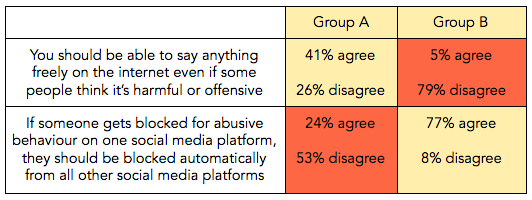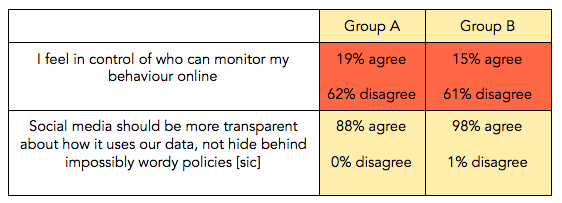Where can we build consensus on the future of the web?
During the Covid-19 pandemic, for many people, computer screens have become a crucial connection to the outside world, and online spaces the stand-in for physical places – offices, schools, shops, pubs. Over the summer, our research found that while people were grateful for the freedoms that the internet had given them during lockdown, there are still too many barriers that people face in navigating the online world. From frustration struggling with poor broadband or lack of digital skills, to anxiety facing hostility and misinformation online – there is a clear appetite for change.
So we wanted to find out what that change should be. We ran an open survey using a deliberative tool, Polis, to see how people felt about different forms of regulation – or lack thereof – of the Internet, and allow them to share their own views. It was an open-access survey, so findings aren’t representative of the national population, but the strength of the tool is that it maps how different beliefs and viewpoints overlap, and allows us to identify key points of consensus and division.
We found two, strongly divided groups:
One larger group (Group B) have a desire for much stronger regulation of the internet, and strict restrictions on a wide variety of harmful content online. They want little tolerance of bad behaviour or bad content online, and are very supportive of government intervention.
A smaller group (Group A) wants to preserve freedoms online, both intrinsically and to prevent bad regulation. This group felt the internet was a positive force in society, rarely felt anxious online, and didn’t feel that unpleasant behaviour stopped them doing what they wanted. They are generally against increasing government regulation or intervention – even where that intervention would promote internet access.
There are some strong divisions between these groups. They disagree over how broad the limits of freedom of speech should be; on whether anonymity online is a good thing; and how strict bans on people who act badly on social media should be.

But some issues united these groups: though people enjoyed using the internet, and felt it was a positive thing for themselves and society – they didn’t feel empowered online, to really be in charge of their online lives and experiences. For each group, the threat to that empowerment was different – fear of government encroachment vs fear of bad actors online. But we saw feelings across both groups that the big tech companies held the cards, not individual users – and a desire for individuals to be better equipped, whether through top-down system changes or individual tailored support, to navigate their online lives.

The key takeaway from these findings is that people across a political spectrum value the internet – but want a user-centered internet, where user experience, rather than corporate profitability, defines what is acceptable or not online.
We also asked experts what their view on our results were, and what it means for policy. Stay tuned for the first in this series!
